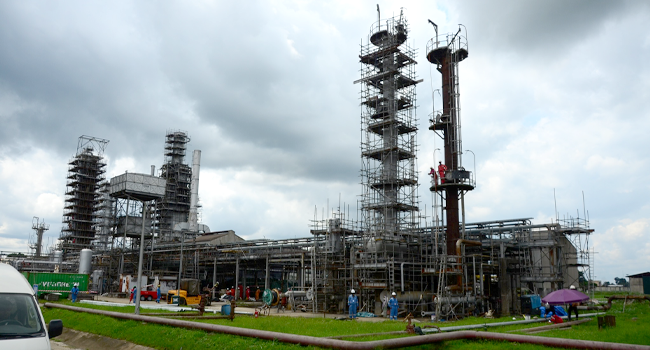The Port Harcourt Refining Company in Rivers State has resumed operations in accordance with the Federal Government’s vow to ensure the facility’s production of refined products by December 2023.
The development comes after several years of underperformance and facilities turnaround maintenance. The combined capacity of four Nigerian refineries in Port Harcourt, Warri, and Kaduna is 445,000 barrels per day (bpd). However, they were closed down in 2019.
However, Senator Heineken Lokpobiri, Minister of State for Petroleum Resources (Oil), stated in August that the Port Harcourt refinery will reopen in December.
Lokpobiri said this during an inspection tour of the rehabilitation work at the PHRC Ltd. plant
“Our objective in coming here today is to ensure that in the next few years, Nigeria stops fuel importation. From what we have seen here today, Port Harcourt Refinery will come on board by the end of the year,” he said in August.
The recommencement of operations at the Port Harcourt refinery comes over two years after the Federal Government approved funding of $1.5 billion (1.2 billion euros) to repair one of its biggest oil refineries.
The government chose an Italian firm Maire Tecnimont to carry out the repair work at the Port Harcourt facility which has a capacity of some 210,000 bpd.
“We are happy to announce that the rehabilitation of productivity refinery will commence in three phases,” the then-Minister of Petroleum (State) Timipre Sylva told reporters.
“The first phase is to be completed in 18 months, which will take the refinery to a production of 90 percent of its nameplate capacity,” said Sylva, adding that the second phase would be completed in 24 months and the third in 44 months.
Despite being Africa’s number one oil producer, Nigeria has relied on imports of petroleum products because of a lack of domestic refining capacity. Fuel shortages are commonplace.
But as part of moves to overhaul the Nigerian National Petroleum Company Limited (NNPCL), the government has been working to improve capacity at the country’s under-performing state-owned refineries.
It is hoped that the resumption of refinery activity in the facility and the commencement of a similar exercise at the Dangote Refinery will improve the supply of fuel in Africa’s largest oil producer and allow the country to make savings on refined fuel and other petroleum products.
With the removal of subsidy on fuel, the move is also expected to impact on the cost of the product.



